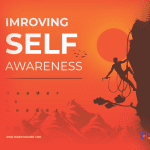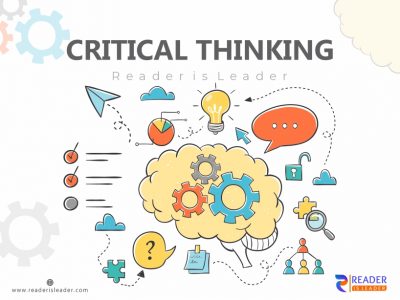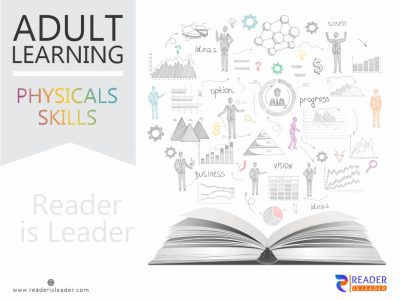Project Management

After completion of this course, the candidate will be able to cover the following..
For Course Benefits, please watch this Video or Read below….
[video_popup url=”https://www.youtube.com/watch?v=JvSVknkkCh8″ text=”” title=”” auto=”” n=”1″ p=”” wrap=”1″ img=”https://courses.readerisleader.com/wp-content/uploads/2023/05/hnhjk.png”]
- Comprehensive Knowledge:
An online course on project management provides you with comprehensive knowledge about various project management methodologies, tools, and techniques. You’ll learn about project initiation, planning, execution, monitoring, and closure, equipping you with a solid foundation to manage projects effectively.
- Project Planning:
The course emphasizes the importance of effective project planning. You’ll learn how to define project scope, create work breakdown structures, develop realistic schedules, allocate resources, and anticipate potential risks, ensuring that your projects are well-structured and organized.
- Efficient Resource Management:
Project management courses teach you how to effectively manage project resources, including human resources, finances, equipment, and materials. You’ll learn techniques for resource allocation, tracking, and optimization, ensuring that resources are utilized efficiently to achieve project goals.
- Risk Management:
An online course on project management equips you with skills to identify, assess, and manage project risks. You’ll learn techniques to mitigate potential risks, create contingency plans, and proactively address uncertainties, ensuring project success and minimizing the impact of unforeseen events.
- Effective Communication:
Project management courses emphasize the importance of effective communication in project success. You’ll learn how to develop communication plans, engage stakeholders, facilitate collaboration, and resolve conflicts, ensuring that project information is shared accurately and timely.
- Stakeholder Engagement:
The course teaches you how to identify and engage project stakeholders effectively. You’ll learn strategies for stakeholder analysis, communication, and management, ensuring that their needs and expectations are addressed, and their support is secured throughout the project lifecycle.
- Quality Control:
An online course on project management covers techniques for ensuring project quality. You’ll learn how to define quality standards, develop quality assurance processes, conduct inspections, and implement corrective actions, ensuring that project deliverables meet or exceed stakeholder expectations.
- Time Management:
Project management courses provide valuable insights and techniques to manage project timelines effectively. You’ll learn how to develop realistic schedules, set milestones, track progress, and manage project dependencies, ensuring that projects are completed on time.
- Cost Management:
The course helps you develop skills in managing project costs and budgets. You’ll learn techniques for estimating, budgeting, tracking, and controlling project expenses, ensuring that projects are completed within budgetary constraints and financial goals are achieved.
- Leadership and Team Management:
Project management involves leading and managing project teams. The course covers topics such as team dynamics, motivation, conflict resolution, and performance management, equipping you with the skills to build and lead high-performing project teams.
- Scope Management:
An online course on project management emphasizes the importance of effective scope management. You’ll learn techniques to define project scope, manage scope changes, and ensure that project deliverables align with stakeholder expectations, minimizing scope creep and ensuring project success.
- Problem-Solving and Decision-Making:
Project management courses help you develop strong problem-solving and decision-making skills. You’ll learn analytical techniques, critical thinking, and decision-making frameworks, enabling you to address project challenges and make informed decisions throughout the project lifecycle.
- Adaptability and Flexibility:
The course prepares you to manage changes and uncertainties in projects. You’ll learn techniques for change management, risk mitigation, and contingency planning, enabling you to adapt to evolving project circumstances and ensure project success.
- Documentation and Reporting:
An online course on project management emphasizes the importance of documentation and reporting. You’ll learn how to create project documentation, develop status reports, and communicate project progress, ensuring that project stakeholders are well-informed and involved in project decision-making.
- Professional Networking:
Online courses provide opportunities to connect with fellow project managers and industry professionals. Engaging in discussions, group projects, and online forums allows you to expand your professional network, share experiences, and potentially form valuable collaborations or partnerships.
- Stakeholder Satisfaction:
Effective project management leads to stakeholder satisfaction. The course teaches you how to identify and manage stakeholder expectations, engage stakeholders throughout the project lifecycle, and deliver project outcomes that meet or exceed their requirements.
- Continuous Improvement:
Project management courses foster a mindset of continuous improvement. You’ll learn techniques for project evaluation, lessons learned, and post-project analysis, enabling you to identify areas for improvement and implement changes in future projects.
- Enhanced Professional Reputation:
Developing project management skills through an online course enhances your professional reputation. You’ll gain valuable credentials and demonstrate your competence in managing projects successfully, positioning yourself for career advancement opportunities and industry recognition.
- Increased Project Success Rate:
The application of project management principles and techniques increases the likelihood of project success. By understanding project management best practices, you’ll be equipped with the tools to effectively plan, execute, and deliver projects within the defined constraints of time, cost, and quality.
- Transferable Skills:
Project management skills are highly transferable across industries and roles. The course provides you with skills in planning, organizing, problem-solving, communication, and leadership, enabling you to apply these skills in various professional contexts and contribute to the success of diverse projects.
Project Management Modules
In this course, you will get 12 Modules which are describing all aspects greatly
- Module One: Getting Started
- Workshop Objectives
- Module Two: Key Concepts (I)
- What is a Project?
- What is Project Management?
- What is a Project Manager?
- Case Study
- Module Three: Key Concepts (II)
- About the Project Management Institute (PMI)
- About the Project Management Body of Knowledge (PMBOK)
- The Five Process Groups
- The Ten Knowledge Areas
- The Triple Constraint
- Case Study
- Module Four: Initiation (I)
- Identifying Your Stakeholders
- Assessing Needs and Wants
- Setting a SMART Project Goal
- Creating Requirements and Deliverables
- Case Study
- Module Five: Initiation (II)
- Creating a Statement of Work
- Completing the Project Planning Worksheet
- Completing the Project Charter
- Case Study
- Module Six: Planning (I)
- Managing Expectations
- Creating a Task List
- Estimating Time
- Estimating Resources
- Estimating Costs
- Case Study
- Module Seven: Planning (II)
- Building the Work Breakdown Structure
- Creating the Schedule
- Creating a Risk Management Plan
- Creating a Communication Plan
- Case Study
- Module Eight: Planning Tools
- The Gantt Chart
- The Network Diagram
- Using a RACI Chart
- Going the Extra Mile: Microsoft Project
- Case Study
- Module Nine: Executing The Project
- Establishing Baselines
- Monitoring Project Progress
- Triple Constraint Reduction Methods
- Case Study
- Module Ten: Maintaining And Controlling The Project
- Making the Most of Status Updates
- Managing Change
- Monitoring Risks
- Case Study
- Module Eleven: Closing Out
- Preparing for Closeout
- Celebrating Successes
- Learning from Project Challenges
- Scope Verification
- A Final To-Do List
- Case Study
- Module Twelve: Wrapping Up
Be Creative with Quizes
Each Module is finishing with its quiz & hence you will get to review your Modules in the form of 100 questions.
- Module Two Review Questions
- What is the definition of a project?
- What is an example of a characteristic of a successful project?
- What is not an example of a characteristic of a successful project?
- What can be defined as “the combined art and science of planning, organizing, and managing resources to get a particular project done on time, within budget, and with the results that the organization set out to achieve”?
- Which of these statements is true of project management?
- What is the definition of a project manager?
- What is an example of a key project management responsibility?
- What job is the project manager often required to do?
- Which of these is not a key skill of a project manager?
- Which of these statements is true of project management?
- Module Three Review Questions
- What is the Project Management Institute?
- What is included in the Project Management Institute’s core ideas?
- Which of these forms the core structure of any project?
- Which of these is a term that could describe the processes?
- How many knowledge areas are crucial to the project management processes?
- What is not a knowledge area the PMBOK focuses on?
- Which of these does Project Procurement Management include?
- What illustrates the balance of the project’s scope, schedule (time), quality, and cost?
- During the planning phase of a project, who defines the scope, time, cost, and quality?
- What is the job of the project manager?
- Module Four Review Questions
- What is the first phase of project management?
- What is the definition of a stakeholder?
- If it turns out that you missed a stakeholder, why should you ask them for their feedback?
- When stakeholders and other project members begin identifying the goals of the project, what is the first step should you take?
- What does the “M” in the SMART acronym stand for?
- According to Jack Canfield, what do vague goals produce?
- In order for a project to be considered a project what does it need?
- What is not an example of a good project goal?
- Which of these statements is true about setting requirements?
- Which of these describes deliverable?
- Module Five Review Questions
- Once you have an idea of who your stakeholders are and what the project will achieve, what is the next step?
- What is the statement of work?
- Who signs off on the statement of work?
- Which of these is not included in the project details?
- What question does ‘scope’ answer in the statement of work?
- Which of these statements is true of the project planning worksheet?
- How is the project planning worksheet similar to the statement of work?
- What is the final, formal project document?
- How long should the project charter be?
- Which of these would not be included in the project charter?
- Module Six Review Questions
- When building a plan, what is important to remember?
- What can unmanaged expectations cause?
- Which of these is a main category that expectations fall into?
- Which of these is not a key checkpoint to include when reviewing documents?
- What is a good suggestion for writing the task list?
- When building your schedule, what should you never do?
- What does the Te in the formula used for estimating time represent?
- What is the first thing you should do when properly estimating time?
- In project management, what does “resources” mean?
- What is a common method of resource listing?
- Module Seven Review Questions
- What is the definition of the work breakdown structure?
- What is the first step of the work breakdown structure?
- After breaking down the segments of the work into sub-components, what is the next step?
- Which of these statements is not true about the schedule?
- What might you need in order to build the schedule?
- Which of these is a helpful tip to make your schedule accurate, available and useful?
- In team projects, which members of your team should have access to the schedule?
- What is not a common approach when identifying responses options to risks?
- During the project, what should team members and stakeholders be encouraged to do?
- Which plan ensures that everyone involved in the project stays up to date, and that information is shared appropriately?
- Module Eight Review Questions
- Which of these is an additional benefit of using the Gantt chart?
- Which of these is an additional benefit of using the Gantt chart?
- When building the network diagram as a team, what is the first step?
- How will using the network diagram to identify a critical path help?
- Which planning tool will be best to use for outlining who is responsible for what during the project?
- How would you start to make a RACI chart?
- What does the “I” in RACI stand for?
- Which of these describes the Microsoft Project?
- Which of these statements is not true of Microsoft Project?
- When is it possible that you would not need the sophisticated features of a software program?
- Module Nine Review Questions
- What indicates the formal end of the planning phase and the beginning of project execution and control?
- Who should the baseline be communicated to?
- When establishing baselines, what can be outlined in text format?
- If an issue arises, what is the responsibility of the project manager?
- Which of these is not a popular, effective method of tracking project progress?
- Which of these is a good suggestion when using your visual scheduling tools?
- After all your planning, what is very likely to change?
- Which of these is not an established method that you can use to decide how to alter the course of the project?
- When faced with scope changes, how can you reduce the schedule without changing the budget (or vice versa)?
- When using triple constraint reduction methods, what is important to remember?
- Module Ten Review Questions
- Which is the fourth phase of project management?
- How often is it recommended that status meetings and status updates be completed?
- In a Friday-Monday schedule, if a holiday occurs on a Friday, when it recommended that status updates be submitted?
- Which of these is not an item that should be contained within the status report?
- What is a good rule of thumb for status reports and meetings?
- What process assures that all changes are approved by the project team?
- Who is the change management form submitted to?
- For larger projects, who can be involved in managing change?
- Which plan used during the planning phase can also be used in the maintaining and controlling phase?
- Which of these is not a helpful tip when using a risk management plan?
- Module Eleven Review Questions
- As your project winds down, what may you find happening?
- Which of these is a helpful way to help co-workers get through the closing of a project?
- After the project, what should you take time to celebrate?
- What is an important part of project close-out?
- Which of these statements is true about learning from project challenges?
- Which of these is not a good reason why meeting with team members and stakeholders to identify lessons learned is a valuable experience?
- At which point in the project do stakeholders and team members meet to determine whether or not the project did what it set out to do?
- Which of these questions can be used as a guide for scope verification?
- If the project team realizes that an important deliverable has been missed, what is a good option?
- Which of these tasks is not completed during closeout?

- What is the requirement for this course?
The course is open to anyone who is interested in learning more about the subject matter, and there are no specific entry requirements to enroll.
- What much Time I need to Spend for completion of this course?
The course is divided into different modules, with an average study time ranging from 20 to 90 minutes per module as per your convenience. While you have the flexibility to allocate your preferred amount of time to each module, after buying you will have lifetime access to the course so you can log in and out of the course as per your schedule.
- When and Where I can Study this Course?
You can study this course at any time and anywhere of your choice, you have the convenience of logging in and out of the web-based course as often as you need. The course is compatible with all devices, including computers, tablets, and smartphones, allowing you to study even while on the go.
- How I can Pay for this Couse?
To make a payment for this course, you have the option to use several payment methods including Visa, MasterCard, and PayPal account. The website employs the latest SSL encryption technology to ensure that your payment details are kept safe and secure. All payments are processed securely by PayPal, providing an added layer of protection for your peace of mind.
- How soon I can have access to the course material?
You will have access to the course immediately after you make the payment. You will receive email confirmation of payment at the same time with full access to the course material.
- Can I earn a Certificate at the end of the course?
That’s Right! At the completion of the course, we will earn a Professional Certificate that can be a valuable addition to your career and personal achievements. This certificate will serve as evidence of the knowledge and skills you have gained through the course, and can help you demonstrate your expertise to current or potential employers.
- What is the validity of the Certificate?
Certificate is your achievement, which will remain with you forever. It doesn’t have any expiry or need any renewal. Enjoy the Course and Good Luck.
Downloads
Get life-time access for 65 Well Documented Downloadable Pages of this course
This Course Includes….
24/7 Student Support
End of Course Certification
Lifetime Access
Compatible with Modern Devices
You can have all of our courses for $99 Per Year, Click Here
Related Courses Below..
Why Should You Get this Course?
Over the past few decades, companies have discovered something incredible: the principles used to create massive successes in big projects can be applied to projects of any size to create amazing success.
As a result, many employees are expected to understand Project Management techniques and how to apply them to projects of any size. This course will provide participants with an overview of the entire Project Management process and key Project Management tools that they can use on a daily basis.
There are Many Types of Project Management Designed for Different Scenarios and Different Professions. This Course will Focus on the Traditional Methodology used by the Project Management Company that Follows the Five Process Groups.






Learning Outcomes
Participant after enrolling into the course, will be able to
Understand Projects, Project Management, and Project Managers
Identify the importance of PMBOK and PMI and the triple constraint
Identify the five process groups and ten knowledge areas as defined by the PMI
Perform a project needs assessment and write goals, requirements, and deliverables
Create key project documents, including the statement of work, project planning worksheet, and project charter
Build a project schedule by estimating time, costs, and resources
Understand and use the work breakdown structure
Create project planning documents, such as a schedule, risk management plan, and communication plan
Monitor and maintain the project
What is Project Management?
Project Management is the integrated art and science of planning, organizing, and managing resources to deliver a specific project in a timely manner, within a budget, and with the results, the company has decided to achieve.
Reader Is Leader
Welcome to “Reader is Leader,” the premier destination for professional online courses designed to empower individuals with knowledge, skills, and expertise in various fields. We believe that reading is the gateway to becoming a leader in your industry, and our carefully curated courses are designed to help you unlock your full potential.



























